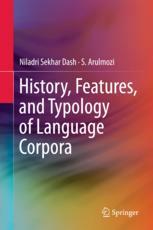

Most ebook files are in PDF format, so you can easily read them using various software such as Foxit Reader or directly on the Google Chrome browser.
Some ebook files are released by publishers in other formats such as .awz, .mobi, .epub, .fb2, etc. You may need to install specific software to read these formats on mobile/PC, such as Calibre.
Please read the tutorial at this link: https://ebookbell.com/faq
We offer FREE conversion to the popular formats you request; however, this may take some time. Therefore, right after payment, please email us, and we will try to provide the service as quickly as possible.
For some exceptional file formats or broken links (if any), please refrain from opening any disputes. Instead, email us first, and we will try to assist within a maximum of 6 hours.
EbookBell Team

4.0
66 reviewsThis book discusses key issues of corpus linguistics like the definition of the corpus, primary features of a corpus, and utilization and limitations of corpora. It presents a unique classification scheme of language corpora to show how they can be studied from the perspective of genre, nature, text type, purpose, and application. A reference to parallel translation corpus is mandatory in the discussion of corpus generation, which the authors thoroughly address here, with a focus on Indian language corpora and English. Web-text corpus, a new development in corpus linguistics, is also discussed with elaborate reference to Indian web text corpora. The book also presents a short history of corpus generation and provides scenarios before and after the advent of computer-generated digital corpora.
This book has several important features: it discusses many technical issues of the field in a lucid manner; contains extensive new diagrams and charts for easy comprehension; and presents discussions in simplified English to cater to the needs of non-native English readers. This is an important resource authored by academics who have many years of experience teaching and researching corpus linguistics. Its focus on Indian languages and on English corpora makes it applicable to students of graduate and postgraduate courses in applied linguistics, computational linguistics and language processing in South Asia and across countries where English is spoken as a first or second language.